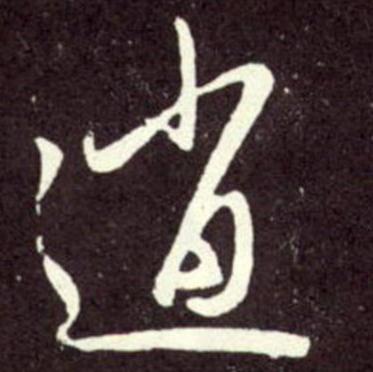Xi Jinping’s Empire of Tedium
Chapter XXXI
在路上
‘It’s as though we are in some kind of “Kerouac fantasia”. Back in the day, Jack Kerouac encouraged everyone to hit the road — forget all that stuff and set out in pursuit of your soul, find your own path in life …
‘My sense is that we have this kind of mindset now and, given the way things are unfolding, I’m pretty sure that all kinds of new community and cultural phenomena will appear.’
— Sig in conversation with Tony Lin, 行星酒館 Planet Speakeasy (Episode 1), 2 September 2023
The podcast Planet Speakeasy was launched on 2 September by Tony Lin 林東尼, a New York-based storyteller who says he is a ‘creative incubator rebuilding diaspora narratives’ 在離散的世界裡重建生活. The style of Planet Speakeasy may be very 2020’s digital, but the conversation between Lin and his friend Sig in Chiang Mai, Thailand, in the first episode of the podcast is also a contribution to over a century of discussions within what I think of as ‘Nomadic China’ 游離的中文世界. It also reflects a vital aspect of what we call The Other China.
***
In recent years, Chiang Mai, 清邁 Qīngmài in Chinese, a city in North Thailand, has attracted many writers, artists and cultural creators from the People’s Republic, including a number of my own old friends for whom the decriminalisation of cannabis in June 2022 is an added attraction. Chiang Mai has also long been home to a cosmopolitan population of foreign sojourners, including old classmates of my brother, Scot, a historian who lives with his family in Rawai, Phuket, one of Thailand’s southern provinces which is also a magnet for Russians.
Some Chinese wayfarers in Chiang Mai belong to the migratory cultural world that I first wrote about in the 1990s (see In the Red, 1999). In its nascent stage that predated the tumult of 1989, artists, film-makers, novelists and poets were attracted to far-flung parts of China. They were caught up in what I dubbed a ‘frontier fever’ 邊塞熱 (see 白杰明 (Geremie Barmé), 中國文藝界的 “邊塞熱” ,《九十年代月刊》, 1986年10月). Dispersed culture activism survived the June Fourth 1989 purge and flourished during the exuberant economic free-for-all encouraged by Deng Xiaoping from 1992 when he responded to China’s relative international isolation and the collapse of the Soviet Union by calling for bigger, better and faster economic reform.
For a time, Lhasa was a focal point for the nation’s ‘cultural youth’ 文青 wénqīng, although they were constantly stalked by the ever-vigilant agents of the state, before the epicentre for Chinese hipsters 潮人 cháorén, along with foreign neo-hippies, yuppies, backpackers and budget travellers, relocated in Zhongdian 中甸 (aka Shangri-La 香格里拉) and Dali 大理, both in Yunnan province. The liminal charm of those borderland towns was enhanced by stunning scenery, a relatively laid-back ambience and a sense of community that was facilitated by ready access to all mod cons.
***
As Tony Lin tells us, Planet Speakeasy is in part an investigation of ‘what it means to be a diaspora creative in turbulent times’, as well as being a new undertaking that shares a lineage with those creative and thinking individuals who, over the years, have engaged with and recorded the diverse global environments that they have encountered while envisioning and building a world in which they want to live.
There is an infectious exuberance in this undertaking. By all rights the discombobulation and frustration caused by three years of Covid, a disorienting experience common both to those in America and in China (as well as in many other countries), would have resulted in an outpouring of creative energy. In the case of China, however, that potential has been muted by the cack-handed rule of the Chairman of Everything over his Empire of Tedium and a general reluctance of people to re-engage due to an economic downturn. Tuning out, lying flat or just hitting the high road has been the response of choice for many Chinese people.
Unlike generations in the past, many younger Chinese people enjoy unprecedented advantages. Creative members of an amorphous and dispersed Nomadic China are more economically independent than their forebears; they are possessed of greater autonomy, more finely honed social and cultural savvy. All of these factors feed an impetus to 自渡 zì dù, that is to navigate an individual way through the roiling tempests of the present age.
In the first episode of Planet Speakeasy Sig, Tony Lin’s interlocutor, observes that:
每時代有一波人湧現出來。我們屬於這麼一波
‘Every generation produces its own wave of people; we are part of just such a wave now.’
We are fortunate to be able to hear what they have to say (see also Voices from The Other China — Ten Podcasts & Twenty YouTube Channels, 10 August 2023).
This is Chapter Thirty-one in Xi Jinping’s Empire of Tedium. It is also included in our series on The Other China.
Our thanks to Lois Conner for permission to use work from her archive of China photographs and to Reader #1 for going over the draft of this essay.
— Geremie R. Barmé
Editor, China Heritage
7 September 2023
***
Listen to Planet Speakeasy 行星酒館 via
Tony Lin 林東尼
- 清邁半年,在破碎的世界裏重建生活,《行星酒館》,EP-01,The Initium 端媒體,2023年9月2日
- X/ Twitter: @tony_zy
- 行星酒馆 Planet Speakeasy, YouTube
The Initium 端媒體 podcasts via
Also in China Heritage
- Voices from The Other China — Ten Podcasts & Twenty YouTube Channels, 10 August 2023
- The Other China (2023-)
- The Art of Survival in the Age of Xi Jinping, 4 May 2023
- Awakenings — a Voice from Young China on the Duty to Rebel, 14 November 2022
- Fear, Fury & Protest — three years of viral alarm, 27 November 2022 (see also How to Read a Blank Sheet of Paper, 30 November 2022; It’s My Duty, 1 December 2022; ‘Ironic Points of Light’ — acts of redemption on the blank pages of history, 4 December 2022; and, Appendix LV 一週年 — What Scares Me, 4 December 2023, as well as the Supplement, ‘It’s only the end of the beginning’ — Teacher Li on Blank Pages, Li Keqiang, Snowflakes & Monsters, 18 December 2023; and, Supplement II, The Persecution of Teacher Li, 16 May 2024)
- The True Face of Mount Lu, 1 January 2022
- Xi Jinping’s Empire of Tedium (2022-)
- Liu Xiaobo on the Inspiration of New York, 31 December 2021
- The Invisible Republic of the Spirit — Preface to Spectres & Souls, 18 January 2021
- Lee Yee 李怡, Back in the Year — Hong Kong 1984, 31 July 2019
- The Double Ninth in 2019 — Settling Scores, Fleeing The Qin and Eating Crabs, 7 October 2019
- Hong Kong Apostasy, China Heritage, (2017-)
On Dali & Shangri-la
- Vivian Wang, Welcome to ‘Dalifornia,’ an Oasis for China’s Drifters and Dreamers, New York Times, 4 February 2014
- Fu Danni, Why Dali’s Hippie Migrants Are a Model for Chinese Communities, Sixth Tone, 19 March 2019
- Aaron Teoh, Dali — History meets Hipsters in the Highlands, Let’s Go, 2 December 2015
- Ben Hillman, Paradise Under Construction: Minorities, Myths and Modernity in Northwest Yunnan, Asian Ethnicity, vol.4, no.2 (June 2003): 175-188; Shangri-la: Rebuilding a Myth, The China Story Journal, 216 November 2015; and, Shangri-la and the Curse of Xi Jinping, Prosperity: China Story Yearbook 2017
- Alec Ash, The Mountains Are High: a year of escape and discovery in rural China, Scribe UK, 2024
Further Reading
- 白杰明 (Geremie Barmé),中國文藝界的「邊塞熱」,《九十年代月刊》,1986年10月
- Liu Xiaobo interview with Bai Jieming (Geremie Barmé), December 1986, subsequently published under the title 中國人的解放在自我覺醒——與個性派評論家劉曉波一席談 《九十年代月刊》,1987年3月
- Geremie R. Barmé, An Artistic Exile: a life of Feng Zikai (1898-1975), University of California Press, 2002
- The Heritage of T’ien Hsia, All-Under-Heaven, China Heritage Quarterly, Issue 19 (September 2009)
- Australia and China in the World: Whose Literacy?, 15 July 2011
- Benedict Anderson, Riddles of Yellow and Red, New Left Review, Issue 97 (Jan/ Feb, 2016)
- 時間社THiS,2016年5月-
- Aranya Siriphon, Fanzura Banu and Pagon Gatchalee, New Chinese Migrants in Chiang Mai: Parallel Paths for Social Interaction and Cultural Adjustment, ISEDS — Yusof Ishak Institute, 2022/30
- 江雪/張潔平:中國媒體過去10年發生了什麼?(文字版),《不明白博客》,EP-019,2022年10月2日
- 《不棲》,創刊號,2023年2月
- Alexander Boyd, “It is a bit ridiculous, but you must obey.” 是有点搞笑,但是你要服从, China Digital Times, 5 September 2023
- 張潔平,活出你想要的中國,《不明白》博客 EP-092,2024年4月10日
- Han Zhang, How Members of the Chinese Diaspora Found Their Voices, The New Yorker, 11 June 2024
Contents
Following some thoughts about avenues of escape and utopias, we discuss Nomadic China, exile and the modern appeal of what Lin Yutang called the School of Self-expression. We then introduce Planet Speakeasy, as well as the literary journal No Perch, before quoting from the first episode of Tony Lin’s podcast. We conclude by returning to the place we started, here in the Wairarapa, New Zealand.
The material in this chapter of Xi Jinping’s Empire of Tedium is divided into the following sections (click on the title section to scroll down):
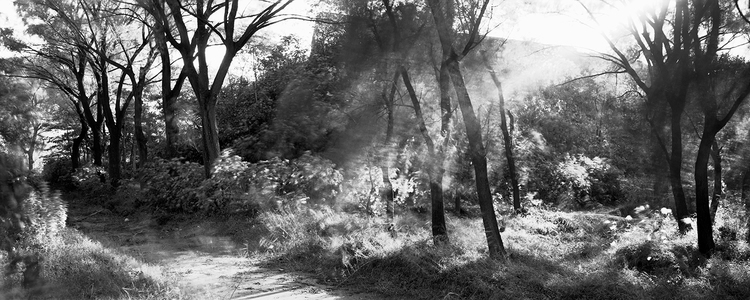
***
Fleeing the Qin & a Turbulent World
避秦時亂
‘It’s as though we are in some kind of “Kerouac fantasia”. Back in the day, Jack Kerouac encouraged everyone to hit the road — forget all that stuff and set out in pursuit of your soul, find your own path in life …
‘My sense is that we have this kind of mindset now and, given the way things are unfolding, I’m pretty sure that all kinds of new community and cultural phenomena will appear.’
— Sig in conversation with Tony Lin, 行星酒館 Planet Speakeasy (Episode 1), 2 September 2023
***
Jack Kerouac’s On the Road narrates with anarchic exuberance the adventures of a group of artistic buddies and wannabes who travel across the continental United States. It reflected the mood of what would be known as the Beat Generation, avatars of a counter-culture and an inspiration to youth rebellion and soul searching for decades to come.
Kerouac’s novel was published in 1957, the same year that China’s Communist Party carried out a ruthless purge of over half a million of the most talented people in the country. Instigated by Mao and state-managed by Deng Xiaoping, the anti-rightist movement was the Party’s response to the people — men and women, young and old in every field of endeavour — who had enthusiastically taken up Mao’s call for ‘a hundred flowers to blossom and a hundred schools of thought to contend’. Expecting adulation for Party rule tempered, perhaps, by a measure of cautionary advice, Mao was devastated by the scale of resentment and criticism that he had unleashed. Factory workers, the proletarian vanguard of Party rule, also spoke out in protest against the stifling rule of the Communists. Mao was convinced that the party-state faced an existential threat.
The people who were labelled as ‘rightists’ — and many fell foul of a crude system of quotas imposed by Beijing — were variously demoted, fired, sent into exile or simply eliminated. When, in late 1978, Deng Xiaoping and the Party criticised the extremes of the High Mao era (1958-1976), they nonetheless reaffirmed the timely necessity of the purge of 1957, even if it had, as they themselves admitted, ‘got out of hand’. The anti-rightist purge has cast a shadow over China ever since (see — You Should Look Back).
Three decades after the publication of On the Road, the spirit of the Beats helped inspire China’s own youth rebellion. Just as cultural conservatives had decried the Beats in 1950s’ America, in 1980s China pro-Party firebrands issued dire warnings about the corrosive danger of restive and questioning young people:
When approaching deconstruction, collapse, or transformation, virtually every culture throws up different types of anticultural elements. … It is in just such antisocial attitudes that we can see common elements between the superfluous man and the outsider (or hippie).
— He Xin, November 1988, quoted in New Ghosts, Old Dreams: China’s Rebel Voices (New York 1992), p.263
***
All-Under-Heaven
As China had opened its doors to capitalism and the former imperial powers that had been the bane of Maoist ideology in the early 1980s, historians had looked back to the 1860s and the Tongzhi Restoration 同治中興 initiated when another autocratic regime reluctantly engaged with the modern world to salvage its broken rule. Zhong Shuhe (鐘叔河, 1931-), a publisher based in Changsha, Hunan province, brought the two eras of reform into conversation by editing a multi-volume series of books in which late-Qing diplomats, scholars and travellers recorded their encounters with the outside world. The best-selling Towards the World 走向世界 series was celebrated as a milestone in the history of China’s awakening as a nation-state.
Sojourning and diasporic Chinese cultural activists flourished, first in the first decade of the twentieth century, which was also the last decade of Qing dynastic rule, again during the New Culture Movement (1917-1927), and again during the long years of war and internecine strife. During the Nanking Decade (1927-1937) of relative stability, and in the midst of the bloody ideological contestation between the Nationalist government and the Communist insurgents, the arts and intellectual life flourished. China was, for the first time in its modern history, a tentative part of global exchange. A paradigmatic product of that era was T’ien Hsia Monthly 天下月刊, an English-language journal. As I noted in the September 2009 issue of China Heritage Quarterly, the precursor to the present publication:
T’ien Hsia Monthly 天下月刊 first appeared in 1935, at the height of Republican China’s ‘era of openness’. Based in Shanghai until the editors fled to Hong Kong following the Japanese invasion, the English-language journal T’ien Hsia reflected a positive relationship between the patriotic aspirations of some members of a Western-educated intelligentsia and a generous spirit of cosmopolitanism. Many of the authors featured in the pages of the journal aspired to be an equitable part of the world community; they were close observers of and commentators on recent developments in Euramerican culture while also paying due attention to the major cultural trends of their own world.
In this issue of China Heritage Quarterly we focus on T’ien Hsia Monthly and avail ourselves of that distant era of openness to (re-)introduce our readers to the concept of T’ien Hsia—that of an ecumenical but principled spirit of global engagement that thinking Chinese people aspired to in an earlier age. …
That bygone spirit, or at least an aspiration in its favour, is today shared by many members of the global Chinese community. It is also one that enlivens the thinking of those who are positively involved with the burgeoning presence of China on the world stage. In this year of commemoration [2009] and sombre reflection (see our March and June issues), the endeavours of the editors and writers of T’ien Hsia Monthly also deserve reconsideration by those interested in the mixed and contested heritages of Chinese culture and thought. By evoking t’ien hsia (and we consciously employ the Wade-Giles spelling used in the Republican era) we invariably will encounter other, and less palatable, dimensions of the work, in particular the revived statist-Confucian concept of tianxia 天下, as well as the ways that the Chinese party-state and thinkers in its thrall attempt to articulate views of a new world order for themselves and others.
The appreciation of the centuries-long lineages of Chinese engagement with the world — primarily through trade and immigration spurred on by dynastic decline and the southern Chinese diaspora — and my work on what I had long thought of as The Other China, is the reason why, when I had the opportunity to create an academic centre based on my vision of New Sinology, I called it 中華全球研究中心, a ‘Centre on China in the World’. The name reflected both the reality of a global China as well as the awareness that ‘China’ was being created and imagined at all points of the compass (see Australia and China in the World: Whose Literacy?, 15 July 2011).
***
‘There are Proles to the East and Fascists to the West. None of them hold any appeal for me. If you really want me to champion a particular “ism”, I can only say that I just want to be myself.’
東家是個普羅,西家是個法西,灑家則看不上這些玩意兒,一定要說什麼主義,咱只會說是想做人罷。
— from Lin Yutang, ‘Preface to “From the Studio of Refusal”, a Book Series’ 林語堂, 有不為齋叢書序, 1934
quoted in We Need to Talk About Totalitarianism, Again, 31 March 2022
***
Awakening, self-actualisation, a yearning for cultural experimentation and political idealism have been entwined in Chinese life since the Qing dynasty and over two millennia of autocratic rule was replaced by the Republic of China in 1912. All of these have also been part of fabric of life in the China’s People’s Republic since the death of Mao Zedong. In the 1980s, Liu Xiaobo was a prominent spokesperson for the mood of self-awakening (see 中國人的解放在自我覺醒——與個性派評論家劉曉波一席談 《九十年代月刊》,1987年3月).
The efflorescence of youth culture in 1980s China was both an expression of long pent-up creativity and a yearning for the materialism of the West, as it was a new stage in a century old quest for utopian possibility. In the early Republican era, while drawn to foreign visions of a better life — Euramerican, Japanese and Soviet Russian — some writers and students also harked back to China’s own utopian traditions.
A Record of the Peach Blossom Spring 桃花源記 by the recluse-poet Tao Yuanming (陶淵明, 365?–427 CE), is the most famous depiction of utopian escape in the Chinese tradition. In it, the narrator discovers a hidden pastoral idyll where the inhabitants have ‘fled the rule of the Qin and the disorders of the time’ 避秦時亂 bì Qín shí luàn. From the 1950s, the expression 避秦 bì Qín, ‘flee the Qin’, was used as a shorthand by people who escaped from Mainland China to settle in Hong Kong. During the first decade of the Xi Jinping era, 避秦 bì Qín has enjoyed renewed popularity, even as, from 2020, Hong Kong was lost as modern China’s traditional safe haven. After the collapse of dynastic China in 1912, Tao Yuanming’s rural idyll became popular and contributed to the aspirations of those who sought renewal in the countryside, an eternal wellspring of Chinese life.
For example, following the New Culture Movement of the 1910s, a group of idealistic young educators gathered at White Horse Lake, Shangyu, Zhejiang 浙江上虞白馬湖, in the hope of creating a utopia environment that would instil positive ideals among a body of students along with practical lessons in agriculture. Because of external political pressure from the increasingly repressive republican government, the experiment soon foundered. As a sense of political and cultural hopelessness spread in schools in the major urban centres, political activism was often tinged by a mood of escapism and even a fashion for youth suicide. Still, educational ventures similar to that of White Horse Lake which were inspired by the socialist New Village 新しき村 experiment in Japan had their advocates, as did experiments in implementing modernist Confucian ideals in the form of the Rural Reconstruction Movement championed by Y. C. James Yen 晏陽初 and Liang Shuming 梁漱溟. These, too, failed as the country was overwhelmed by autocratic politics, war and internecine strife.
Then, from the late 1930s, in Yan’an in northwest China, Mao claimed that the Communist guerrilla forces were laying the foundations for liberation and a utopian future. Publicly he vowed to champion democracy, human rights and individual fulfillment, even as he imposed a soul-crushing form of politics and tireless struggle in secret. Following the Communist takeover in 1949, Mao and his comrades imposed a narrow vision on the nation. The alternative on Taiwan, although less blood-soaked, was also myopic. For decades, Hong Kong was the only part of the Chinese world in which people had unfettered access to the contradictory ideas of the Republican era.
For a time in the mid 1960s, China’s young people believed that by smashing the old world they would finally create a utopian future for China. Their zealotry of the Red Guards, however, ended in internal exile and rural poverty. Although the Communist Party had offered a utopian vision from the time of its founding in 1921, over the decades the Party’s false utopia had done more to crush the dreams and devastate the lives of the multitude than any other idealistic pursuit in modern Chinese history.
In the late 1970s, members of the Red Guard generation helped create a second New Culture Movement, known as a New Enlightenment, which promised yet another national cultural renovation. And, when China discovered the counter-culture of the West in the 1980s, some activists found inspiration in far flung territories such as Tibet. Poets and artists congregated in Lhasa in the hope of finding new freedoms, although they often encountered even greater repression. Then San Mao (三毛, 1943-1991), Taiwan’s famous wandering spirit, inspired a generation of Mainlanders, something that fed into a fashion among up-and-coming bohemians for reinvention and self-discovery in exotic locals. As we noted earlier, from the late 1990s, Dali and Zhongdian in Yunnan became the epicentre of China’s ‘bobos in paradise’. In the 2020s it is still a place where people from the littoral provinces revel in the sense that ‘the skies are vast and the emperor far away’ 天高皇帝遠.
From 2000, a number of utopian artistic projects were essayed in China Proper. These included Zheng Guogu’s Age of Empires (aka Liao Garden) at Yangjiang, Guangdong province, and Ou Ning’s Bishan Commune in Anhui. Although both of these experiments had foundered by 2016, the creative impulse, not to mention the material conditions and ambitions, of younger artists swelled unabated. By the early 2020s, the irrepressible desire to imagine, make and explore, was finding ever new outlets, more readily outside China than within.
***
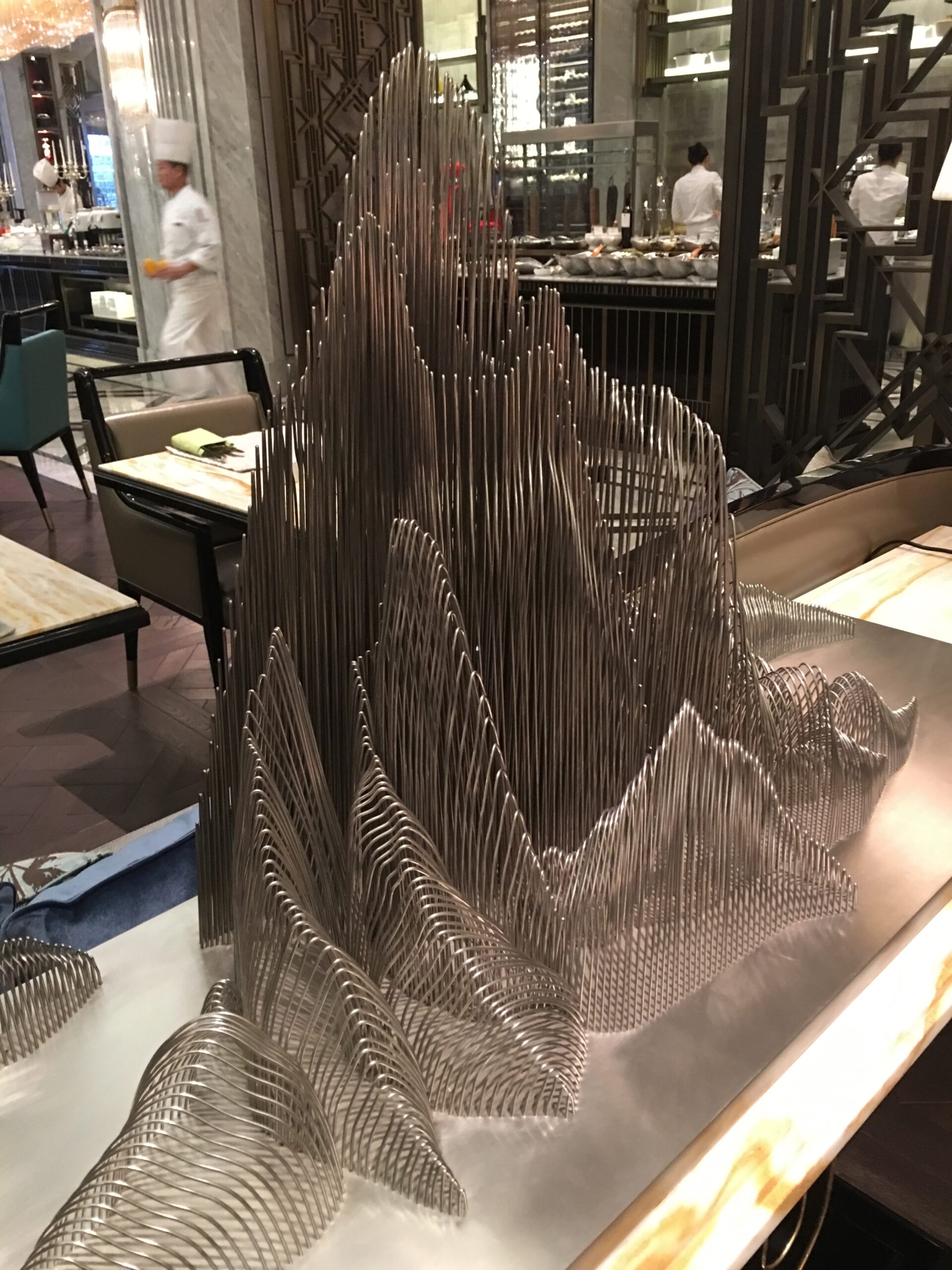
***
The Other China & Nomadic China
My first encounter with The Other China was around the same time that I was also getting to know Official China. It came in the form of mother’s copy of The Importance of Living (1937), a full-throated paean to Chinese culture written by Lin Yutang 林語堂, one of a generation of writers who left China during the Japanese War. In particular, Lin’s observations about what he called the ‘School of Self-expression’ 性靈派 xìnglíng pài, in which he included a number of writers and artists active in the late-Ming dynasty who were also known as the ‘Gong’an School’ 公安派, struck a chord:
The School of Self-expression demands that we express in writing only our own thoughts and feelings, our genuine loves, genuine hatreds, genuine fears and genuine hobbies. These will be expressed without any attempt to hide the bad from the good, without fear of being ridiculed by the world, and without fear of contradicting the ancient sages or contemporary authorities. …
The dangers of this school are that a writer’s style may degenerate into plainness (Yuan Zhonglang [袁中郎]), or he may develop eccentricity of ideas (Jin Shengtan [金聖嘆]), or his ideas may differ violently from those of established authorities (Li Zhuowu [Li Zhi, 李卓吾/ 李贄]). That is why the School of Self-expression was so hated by the Confucian critics. But, as a matter of fact, it is these original writers who saved Chinese thought and literature from absolute uniformity and death. They are bound to come into their own in the next few decades.
Chinese orthodox literature expressly aimed at expressing the minds of the sages and not the minds of the authors and was therefore dead; the xingling school of literature aims at expressing the minds of the authors and not the minds of the sages, and is therefore alive. … Genuine literature is but a sense of wonder at the universe and at human life.
He who keeps his vision sane and clear will have alwavs this sense of wonder, and therefore has no need to distort the truth in order to make it seem wonderful. The ideas and points of view of writers of this school always seem so new and strange only because readers are so used to the distorted vision.
— quoted in An Artistic Exile, pp.357-358
Shortly after Mao Zedong’s death on 9 September 1976, I was introduced to The Other China in China itself. It was in the form of what Linda Jaivin later called the Baiwan Zhuang speakeasy of Xianyi and Gladys Yang in northwest Beijing. ‘All the excitement of an era could be found in the Yangs’ large, neat if down-at-heel apartment crammed with books, art, alcohol, knickknacks, friends and followers,’ Linda recalls. When recalling Yang Xianyi, she wrote:
He and his peers were, in a sense, the last literati. I don’t believe that any generation in China since has been able to offer up a group of intellectuals with anything approaching the combination of traditional learning; contemporary sensibility; political nous; social grace; and ironic, sharp and yet never vulgar wit that Xianyi and his friends held in their very DNA. They were young when Communism was still a contested idea, when the old society was crumbling and uncertain but the new one with all its certainties and dogmas had not yet been born. Xianyi lived through revolution and then every ideological campaign that revolution, enshrined as government, threw at its people. He witnessed thirty years of social, cultural and economic reform. With his passing, and the passing of his coterie, China has lost more than just a few living legends and national treasures—it has lost a precious part of its cultural memory.
It was at Xianyi and Gladys ‘speakeasy’ that, in the early 1980s, I encountered John Blofeld (1913-1987) and David Kidd (1926-1996), both of whom had lived in Beiping in their youth. City of Lingering Splendor (1961), Blofeld’s celebration of a long-lost world, had captivated me during my high school years, which coincided with the counterculture of the 1960s, and I later got to know David Kidd, who wrote All the Emperor’s Horses (1960) and founded the Ōmoto School of Traditional Japanese Arts, when I was living in Kyoto. While David was an ethereal aesthete with a gimlet eye for and a businessman’s acumen in trading luxury antiques, John was of a spiritual bent, something reflected in his writings on Buddhism, his charming translation of the I Ching and the memoir, My Journey in Mystic China: Old Pu’s Travel Diary (1990). After the fall of Beiping to the PLA, he relocated to Hong Kong before settling in Bangkok.
At the Baiwan Zhuang salon I also met Han Suyin (韓素音, 1916-2012), an author whose works I had devoured when studying Chinese under Pierre Ryckmans (Simon Leys) who, I discovered, was her Belgian bête noire. The contempt was mutual and while Suyin, a notorious political chameleon, badmouthed Pierre on every occasion, he focussed his contempt in ‘The Double Vision of Han Suyin’, a devastating essay in which he juxtaposed quotations from Han’s effusive pro-Maoist writings with others drawn from her post-Mao best-sellers (see Leys, The Burning Forest: essays on Chinese culture and politics, 1985, pp.177-193).
***
Over the past four decades part of my work has been devoted to writing about, translating, understanding and celebrating The Other China. In 1983, we called it ‘the Chinese commonwealth’, a cultural sphere that embraced Mainland China, Hong Kong, Taiwan, as well as Chinese creators around the world. Even then, given the continued repressive nature of the Chinese state, we speculated that key aspects of Chinese culture and thought may well ‘re-incarnate’ outside the Chinese mainland in various new and vital forms. Since the 1990s, when China’s long-lived civil war entered a new slow-burning era of competition and intensity, I fixed on the expression The Other China to describe the amorphous and constantly evolving creative impulse in the Chinese world.
Xi Jinping’s Empire of Tedium is easily decried for being essentially (Communist) conservative and an involuted and stagnant world. In The China Story Yearbook project (2012-2014) and subsequently in China Heritage (2017-), I have chronicled some aspects of Xi Jinping’s dour rule. While doing so, I have also introduced aspects of The Other China that not only persist but promise to flourish regardless of its enemies. After the ‘three Covid years’ (2020-2022), that Chinese world is finding just such new ways to flourish. After all, once individuals have successfully ‘rùn‘ 潤, relocated or begun circulating outside China, they find new ways and means to express themselves. Those who remain in China, some in ‘internal exile’, bring to mind the words of Joseph Wittlin, that I quoted in my study of the ‘artistic exile’ of Feng Zikai (豐子愷, 1898-1975):
… any major artist and creative mind is a foreigner in its own country. The very fact of this distinctiveness or non solidarity with common sense, the fact that everything that the artist brings with himself is unusual, sometimes odd, and mostly foreign to his closest environment, makes him an exile. He is an exile even if he lived in the same, his own, home from birth to death.
Coalescing, engagement and articulation are just as much a feature of the Zeitgeist as are dispersion, scattering, dislocation. The Other China hinted at in Tony Lin’s Planet Speakeasy — itself a networked virtual reality with the practical aspiration of being able to focus and reflect a global cultural cabaret — brings to mind another one of Hegel’s maxims: ‘history is the story of liberty becoming conscious of itself.’ The Other China is part of just such an evolution.
***
Zhu Dake 朱大可, a cultural critic who came to fame in the 1980s, described the dilemmas facing the first post-Mao generation of exiles:
People fly off to distant parts, flee this impoverished land in search of a new world, paradise.
It is the physical manifestation of a spiritual longing. This great migration gives form to a sense of national hopelessness, it’s a new superstition with the outside world as its totem. Postindustrial society appears as a terrestrial refraction of some heavenly blue-print, enticing troubled souls to venture forth and enjoy…
During the Xi Jinping era, Dake relocated to New York to become one of ‘the yellow-skinned ETs’ that he had mocked in the late 1980s. When we met again in Flushing — a locus for displaced mainland Chinese intellectuals and writers — in late 2019, he reflected on an observation he had made three decades earlier:
[Exile] is certainly a moral process suffused with shame and pangs of conscience. The writer in exile must learn to be thick-skinned and shameless, to bow his head as he stands beneath the eave of his patron’s magnanimity, to accept the downward gaze and ridicule of new divinities. People must first understand that they are the descendants of a fallen tribe only then can they become citizens of the world.
— Zhu Dake, ‘A Literary Void’, September 1988, quoted in New Ghosts, Old Dreams, 1992
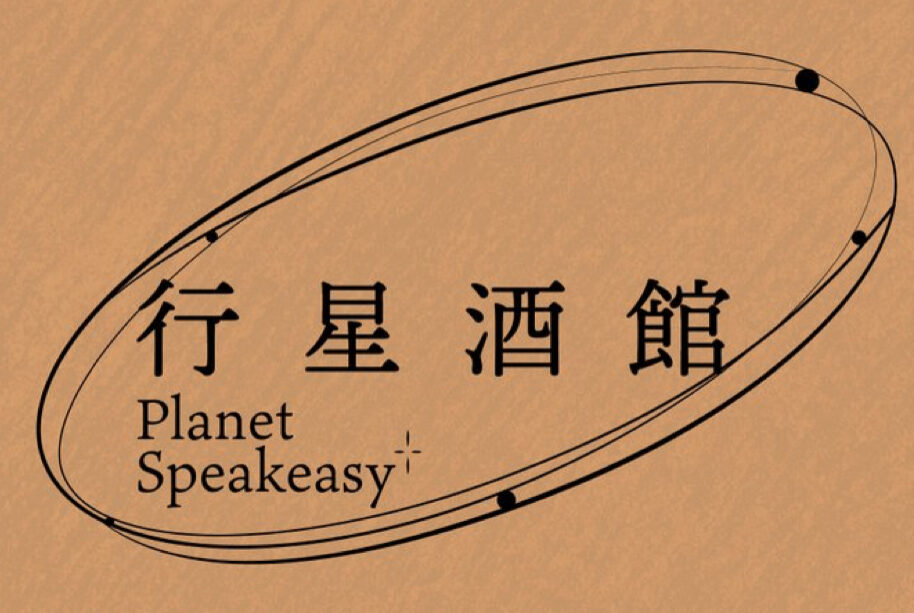
***
Planet Speakeasy: an origin story
Tony Lin 林東尼
Tony Lin is a media creator based in the United States who previously worked on the International Team of VICE News Tonight and was one of the founders of Golden, a Netflix channel focussed on the Asian diaspora.
— from the Editor’s Introduction to Planet Speakeasy, The Initium, 2 September 2023
Over the summer of 2022, my life took a precipitous turn: first, I quit what had been a pretty decent job in New York and then, having felt cut off from the rest of the world for the three long Covid years, I packed up everything I needed in two large suitcases and set off back to Asia. I’ve been on the road for nearly a year now.
Hanging out for a time in Hong Kong, I then headed over to Taiwan before going down to Vietnam. I ended up in Thailand. The first phase of my trek coincided with the Twentieth Congress of the Chinese Communist Party and the Blank Paper protests. During that time, quite a few friends of mine who were scattered around the Sinophone world also chose that time to head out and, soon after, the strict covid policies in China, Hong Kong and Taiwan were dramatically relaxed. Then, another bunch of friends living internationally headed over to Asia as well. With those events as background and given the sheer happenstance of the moment, I felt that friends who had been long dispersed by the unpredictable currents of our age were suddenly able to meet again.
[Translator’s Note: For related material from Xi Jinping’s Empire of Tedium, see:
- Chapter Seventeen 聚 — China’s Highly Consequential Political Silly Season: Part I (6 October 2022); Part II (14 October 2022); and, Part III (16 October 2022). Epilogue (8 November 2022);
- Chapter Twenty-one 醒 — Awakenings — a Voice from Young China on the Duty to Rebel, 14 November 2022; and,
- Chapter Twenty-two 官逼民反 — Fear, Fury & Protest — three years of viral alarm, 27 November 2022 (see also Appendix XXIII 空白 — How to Read a Blank Sheet of Paper, 30 November 2022; Appendix XXIV 職責— It’s My Duty, 1 December 2022; and, Appendix XXV 贖 — ‘Ironic Points of Light’ — acts of redemption on the blank pages of history, 4 December 2022)]
去年夏天,我的人生陡然轉向:先是辭掉了體面的工作,又在疫情割裂世界三年之後,第一次離開北美,回到亞洲。
全副家當精簡成兩大個行李箱,這一走快一年。
從香港、台灣,再到越南、泰國。出走的开始,恰好橫跨中共二十大和白紙運動,間中也有不少中文世界的朋友選擇離開。緊接着,是中港台三地防疫政策劇烈轉向,許多海外朋友又陸續回到亞洲。這一系列的因緣際會,使得被時代洪流衝散的朋友,終又能聚首。
In the welter of reunions that followed, many of us frequently found ourselves to be lost for words, or overcome by roiling emotions — ecstatic glee could suddenly give way to tearful anguish. In the space of a few short years, the post-89 generation of Chinese young people which had come of age in an era of globalisation, individuals who only yesterday had promised to meet up somehow in some distant corner of the world, found that their lives were on dramatically different trajectories. Regardless of whether they had gone overseas or stayed put in China, were striving in pursuit of professional success or had taken to lying flat in the spirit of quiet quitting, at this juncture, a moment of profound change, many of us are re-thinking our lives. Some friends had thrown caution to the wind and upped stakes to rùn out of China altogether. Others who long ago settled overseas now want to reconnect with what for them is the meaning-making world of the Chinese language and Chinese interconnectivity. In the process, some pursue pastoral idylls while others cast aside firmly held certainties to seek release in physical labor. No matter what the path being taken, it seems as though all of these choices have led inexorably to an undeniable and weighty realisation:
‘It really seems at though there is no going back.’
Even if we can go back, where exactly would be returning to? No one can say for sure.
It is as though each and every one of us has a tightly wound coil inside of them that may, at any moment, spring free. What we had originally thought was an orderly reality, all of those clearly defined boundaries and treasured values, as well as our presumptions about our own future, have suddenly been swept aside in a tumult. We grew up with the reassuring promise that [as the slogan of the 2008 Beijing Olympics put it] ‘we were one world with one dream’. Now, we had come to the sudden realisation that we really were living in totally different camps, buffeted by the swirls and eddies of a cyber maelstrom.
[Translator’s Note: See Chas W. Freeman, Jr, The State of the Sino-American Pas de Deux in 2021, 20 February 2021.]
千百次似曾相識的相顧無言,以及數不清的笑中有淚、淚中帶笑。短短幾年間,一批全球化浪潮下成長起來的八九零後生人,昨天還許諾要在世界某個角落不期而遇,而今卻走上截然不同的人生旅途。不管出國還是留下、奮鬥或躺平,在突如其來的鉅變中,大家都開始重新思考自己的人生——有的朋友放下包袱,潤出國門。也有出國多年的朋友,重新尋找和中文世界的連接。有人擁抱田園牧歌,有人放下執念,在體力勞動中尋找寄託——雖是殊途,卻又指向同一個簡單又沉重的結論:
我們,好像回不去了?
能回到那裏去呢?沒人說得清楚。大家心裏都有一根越繃越緊的弦,在某個時刻「啪」地一聲斷裂了。原本相信的秩序、清晰的邊界、珍視的價值還有未來的走向,被時代驟然拍到岸上。在「同一個世界,同一個夢想」話語體系裏成長起來的我們,轉眼就置身21世紀賽博亂世的不同陣營裏。
Yet, living within the interstices of these clashing camps, we found that we shared a sense of disjuncture, alienation, aphasia, enervation, longing and uncertainty. Then, as a result of our numerous encounters we came to a collective and irony laden realisation: as soon as you accept the premise that there was simply no ‘going back’, everything suddenly became far more simple, clear and — surprising though this may sound — even promising.
You could say that to ‘destroy the old so that the new can be brought forth’ is a traditional knack that the diasporic Chinese world has developed. Whether in the Chinatowns that have sprung up in cities and countries around the world since the nineteenth century, or among the Chinese community groups that formed and grew to strength throughout Southeast Asia, everyday life, national boundaries, languages and knowledge itself have repeatedly been undone and remade. Such experiences and histories are models that are studied and emulated by future generations of the Chinese diaspora. In reality, changes have already been surreptitiously unfolding among us: in recent years, Chinese cultural salons have flourished in various quarters of Europe; no longer the ill-attended gatherings of yesteryear they now boast unscheduled meetings of dozens of people. The Chinese-language platform Feminism [女子主義] that brings together disparate communities, has gone from organising open mic events at small venues in New York to stage major performances with much sought-after tickets. Then there are the Chinese expats who, having recently taken to the road, alight on a meaningful first stop in Thailand.
At the same time, others long settled on the other side of the Pacific — disparate individuals who have found a place in their new homes — have been reflecting on what it really means to ‘become part of the mainstream’ and seek other meaningful new ways of being. For example, in the [San Francisco] Bay Area on the West Coast of America, the Chinese literary journal No Perch [《不棲》] launched early this year. Numerous podcasts have been created and become ‘business incubators’. Participants in such activities hail from all quarters, have different stances and boast various perspectives. They all share in common the fact that they are in foreign lands at a time of uncertainty. As a result, we are all part of this slow-unfolding process of dispersal, of being a member of a diaspora. We are, therefore, forced to reflect: who exactly are we? Where shall we be? What must we let go of? And, once we have let go, how should we live?
不過,在縫隙中感受到的斷裂、陌生、失語、倦怠、懷念、愧疚、彷徨,卻又驚人地相似。
無數場重逢中,我們不約而同地發現了一個弔詭的事實:一旦坦然接受「回不去」這個設定,一切反又變得簡單、明瞭,甚至有了一抹希望。
破舊立新,可謂中文離散世界的傳統藝能。從百年間分布全球的中國城,到四散南洋茁壯生長的華人社群,生活、國境、語言和知識不断打破重建,这一切早為下一代的離散者提供了學習的樣板。事實上,變化已經在悄悄地醞釀:四散歐洲的中文文化沙龍,已從當年的零星小聚變成了近百人的不定期大聚。聯結海外中國女性的社群平台「女子主義」,組織的開放麥活動已從紐約小劇場蛻變成了一票難求的火爆演出。大批新晉離開中國的人們,更把泰國當作出走的第一站。
與此同時,大洋彼岸早年定居海外、融入當地的離散者,則反思「融入主流」之外的生存方式。美國灣區誕生了中文文學雜誌《不棲》,播客世界出現了「百花」這樣的海外中文播客孵化器。天南地北的參與者們,立場各異,背景不同。但人在異鄉、生逢亂世,大家都逃不開「離散」這個緩慢而深刻的過程。它逼着我們去反思,我是誰?我要留在哪裏?我要放下什麼?而放低之後,我該怎樣地活着?
Mulling over questions like this for what was nearly a year on the road, I eventually came to a halt in Chiang Mai, Thailand. I rented a spacious property and created an atelier called ‘The Here and Now’ [此處]. Planet Speakeasy, a podcast and a column produced for The Initium [端媒體 ] media company [in Singapore], are created in that new space, one in which I can search for answers in the company of a group of like-minded friends.
The Planet Speakeasy podcast is our way of wrangling with one overarching question:
As individuals living in an age of holistic disruption, how exactly should and can we describe what we are going through?
The first episode of Planet Speakeasy talks about how we got here. It all started in October 2022 when my friend Sig and I met up again after the three-year separation caused by the Covid pandemic. Having set off from different starting points, we found ourselves in North Thailand and, over the following months, we worked out a way to align our lives in this new environment. On the eve of another departure, six months after we had reconnected, Sig and I engaged in a conversation about life on the road, Chiang Mai and the personal reinvention that we’ve both experienced.
帶着這些問題,在旅行近一年後,我停在清邁,租了幾畝地,成立了一個創作空間。「行星酒館」這個播客和專欄,正是自這個空間而起,記錄一衆朋友探索的過程。
這個播客,只想嘗試回答一個簡單的問題:
在這個劇烈動盪的時代裏,作為個體的我們,究竟在經歷着什麼? 「行星酒館」的第一期,正是這個播客源起的故事。去年10月,我與好友Sig在疫情失散三年後重逢。我們各懷自己的包袱,最終在泰國的北部,分別找到新的生活座標。六個月後,我們即將再次離別,就有了這樣一段對話——關於旅居,關於清邁,以及短短半年間,我們生活翻天覆地的變化。
***
Update
By the 6th of September, five days after its launch, the first episode of 行星酒馆 Planet Speakeasy was listed high up in the leading documentary podcast charts worldwide. Tony Lin said that ‘Even more surreal [was] that 100+ people showed up at our in-person launch event in NYC. We got to laugh and cry about these few years of absurdity, confusion, burnout and the path to re-discover ourselves and happiness.’
***
From the Editors of No Perch
on a new Chinese-language literary journal produced in the Bay Area
We have created No Perch with the aim both of recording the lived realities of our overseas communities while also encouraging young people to continue to write Chinese. The expression ‘no perch’ reflects our sense of being untethered, of being both unsettled yet open to serendipitous encounters. It represents, too, the bravado of the ‘knight-errant’, the solitary sojourner who, having forsaken the familiarity of home, remains nostalgically attached to it.
It is popularly asserted that the main themes of twentieth-century Chinese literature were the ‘city’ and the ‘countryside’. Today, however, literary creativity readily surpasses the geopolitical boundaries of the nation-state. Chinese letters long ago embraced the globalised world of which China itself is now part. No Perch aims to create a venue for writers and readers with shared interests and we hope that it will be an environment that welcomes ever-changing forms of expression and an enthusiastic forum guided by the belief expressed by the old saying that ‘the phoenix will only perch on a parasol tree’ [that is, quality will always seek out quality].
《不棲》創刊詞
千禧年以來,越來越多的中國人走出國門。在個人選擇與時代環境的雙重影響下,中國移民普遍經歷著自我認知的再定位。他們浸淫在陌生的語言環境中,身份的界限變得模糊,而對母語的依戀卻揮之不去。融入當地和堅守自我之間的平衡,是每個異鄉人必做的功課。
為了記錄海外華人的生命狀態,為了鼓勵當代青年的中文寫作,我們決定創辦《不棲》這一文學刊物。「不棲」二宇,代表著漂泊、動蕩和機遇,是遊子拋下溫柔鄉的孤勇,而這孤勇中也飽含著鄉愁。
有人說二十世紀中國文學的兩大母題是”城”和”鄉”:而今天,中國文學的版圈不再局限於物理意義的國境之內,它早已隨著中國擁抱世界的腳步蔓延開去。通過《不棲》,我們嘗試著凝聚起一群志同道合的作者和讀者,並期待著在文學日漸式微的當下,你我仍抱有鳳凰非梧桐不棲的熱忱和信念。
***
Listening in to Planet Speakeasy
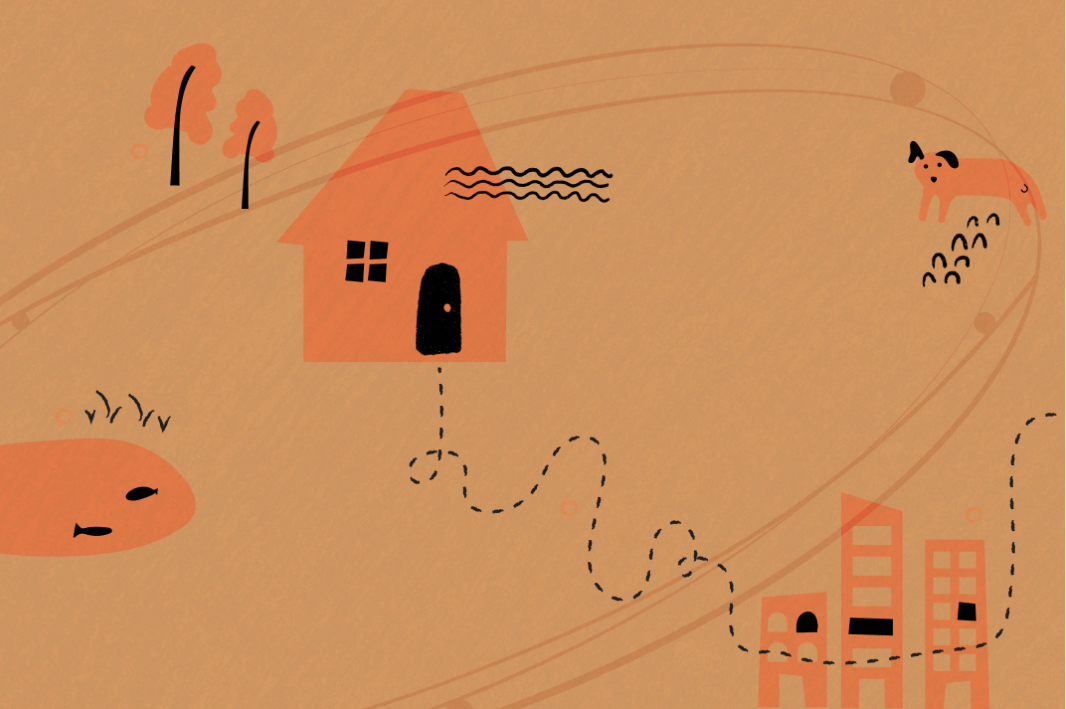
***
Episode I — a Timeline
00:57 — the gestation of Planet Speakeasy
03:13 — why Chiang Mai?
06:00 — reunions in the post-Covid era
12:51 — on how to make sense of Chiang Mai
21:11 — a note on global fluidity and our privilege
25:33 — opening up about a different way of living and being
30:43 — a new diaspora born of global age
32:55 — chilling out and experimenting with new lifestyles
36:00 — self-adjustment to a new way of being
40:40 — Hacker, the little dog that has just rùn out of China
44:50 — suggestions for our friends
46:10 — what to do next?
00:57 行星酒館播客的誕生
03:13 我們為什麼選擇了清邁
06:00 後疫情時代,一場不約而同的老友重逢
12:51 論清邁這座小城的打開方式
21:11 一個關於全球流動性與特權的註腳
25:33 展開講講,另一種生活的探索
30:43 全球背景下,大批新離散者的誕生
32:55 舒展之後的一場大型新生活嘗試
36:00 新生活裡自己的改變
40:40 剛潤出來的狗子,Hacker小傳
44:50 對朋友的建議
46:10 下一步想做什麼?
Listen to the full episode via:
***
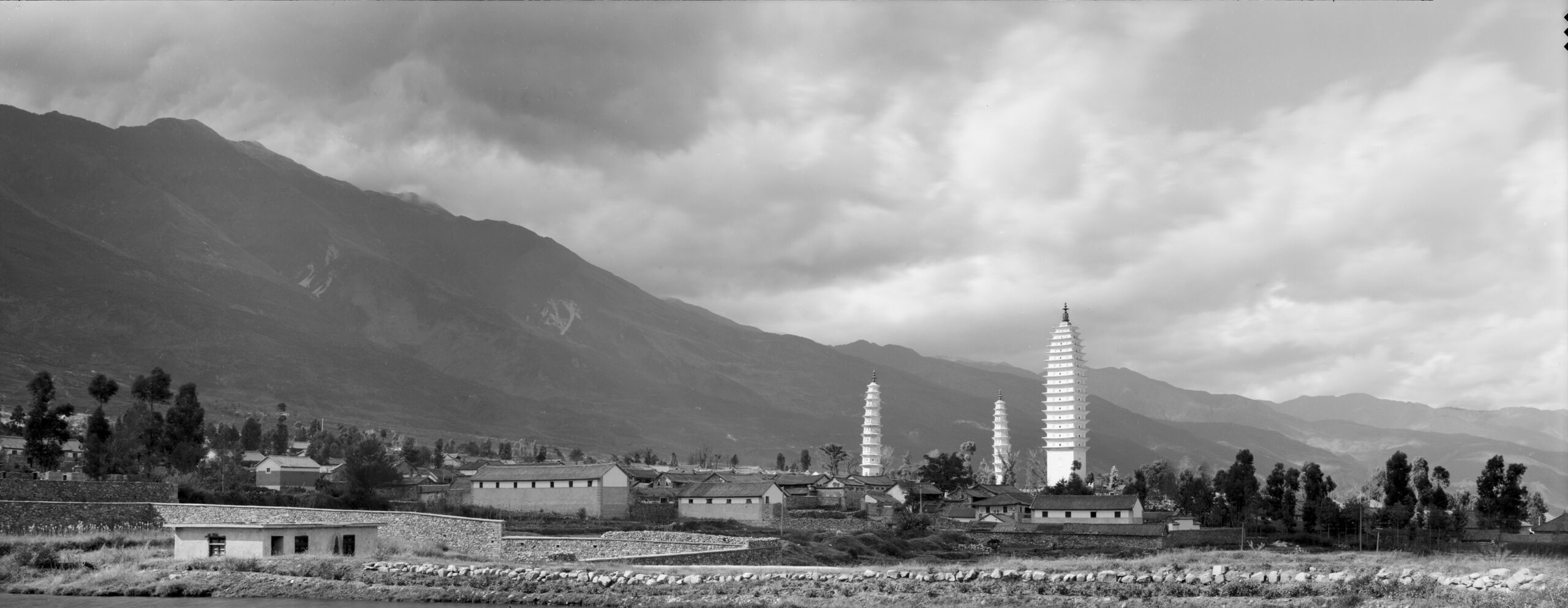
***
Four Excerpts from Episode I
A Personal Journey that Started in Dali
從大理開始的人生旅程
Sig: After graduating from university I stayed on in Beijing for another seven years. That was followed by five more in Shenzhen. Both places are the most intense urban environments in China. I moved to Dali in Yunnan province around the time of the Covid epidemic and spent two years there. I was able to get to know myself there and I had the mental space to reconsider the direction my life.
Living in Dali was the first time that I’d really encountered a ‘community’. Up until then, I’d always lived in cities and never even knew who my neighbours were. The only contacts I had were my co-workers and groups of friends. I didn’t feel as though I belonged to community at all. If you didn’t make a point of meeting up with people you’d simply never get together. The people in Dali had been neighbours for their whole lives. They didn’t just get together once a week, or once a month: they were always there and bumped into each other throughout the day. It was an incredible feeling.
Lots of ‘Old Dali-ites’ — that is people who had moved there from various parts of China ages ago — were like hippies or backpackers. They knew the best places to hang out and the best escapes. Since they had made a little culture scene for themselves it meant that I didn’t have to start over from zero. Many people in that crowd moved on to Chiang Mai a while back. Why did they make the move? Well, the seeds for change were planted long ago.
Sig: 我大學在北京,然後七年在北京, 五年在深圳,都在中國最卷的大城市裏。在疫情開始的時候我搬去了大理兩年。那兩年讓我重新理解生活和自己。
大理的社區感強,我第一次覺得生活裏居然有了community。以前一直生活在城市,不知道鄰居是誰,認識的人僅限於工作或者興趣小組,大家沒有強烈的社區感,不約的話根本不會見面。在大理這幫人是小時候的鄰居,他永遠在哪兒。不是一週來一次,一個月約一次——不是,他們一直在那,天天沒事就能碰到他。這種感覺很妙。
有很多老大理——最早去到大理長居的外地人,是一群嬉皮士或者揹包客,早就研究出適合遊玩的線路,他們知道哪兒好,也創造了那邊的文化,我就不用從零去探索。這批人很多都已經來了清邁。那時候我就好奇,為什麼大家都從大理搬去清邁?這個種子在當時就已經種下。
***
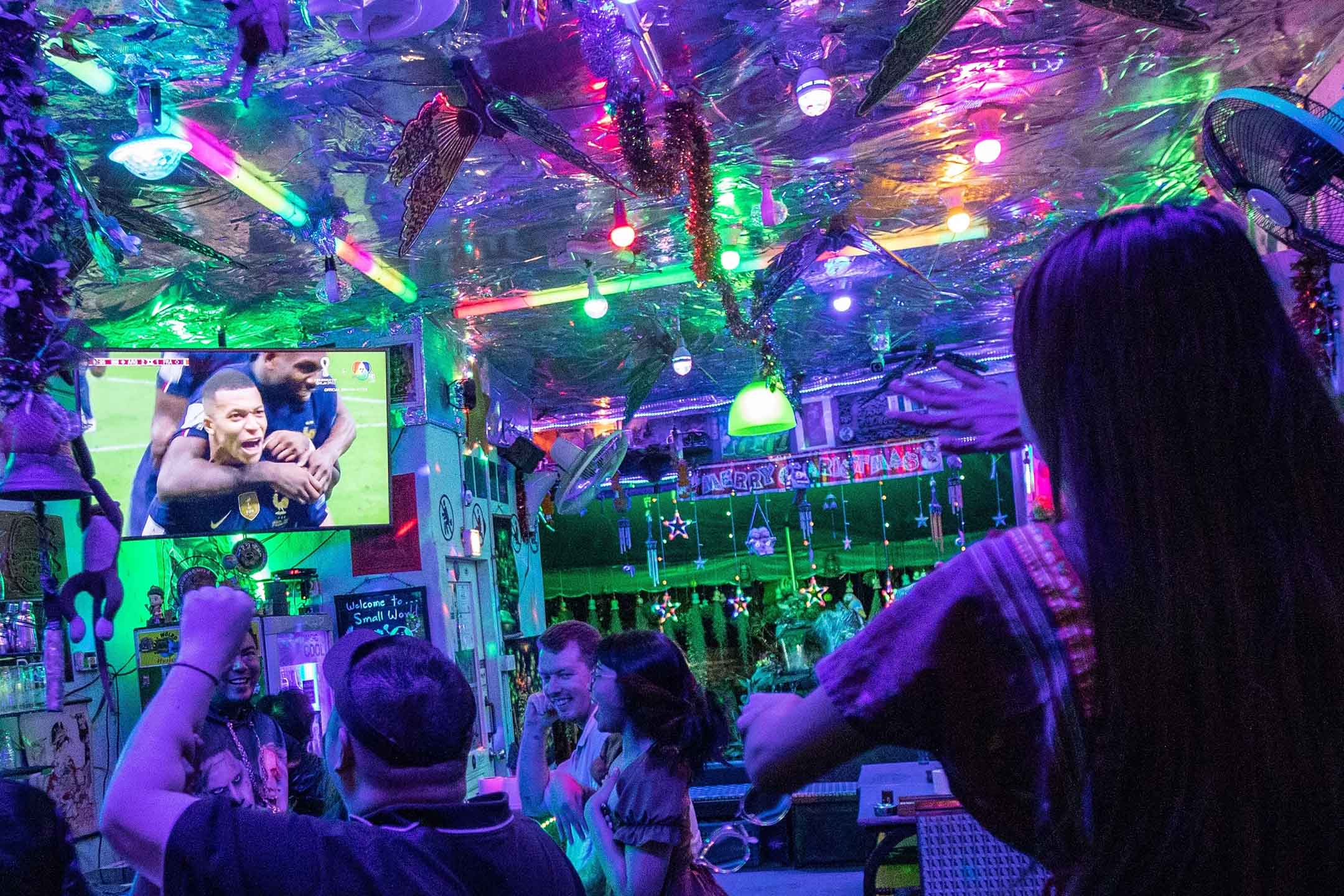
***
Reconnecting in the Post-covid Moment
後疫情時代:重新接上斷裂的生活
Sig: In October 2022, my partner Jiafei and I planned to relocate overseas and we had bought plane tickets that took us to Los Angeles via Bangkok. Though we felt conflicted: should we go on to LA or just stay in Thailand? When I rang Tony, he told me that he was just about to head over to Hong Kong from America. He said: ‘America’s too full on and [after Hong Kong] I’m going on to South East Asia.’
As soon as we landed in Bangkok, Jiafei and I pretty much decided to stay. The pandemic was more or less over and we hadn’t been out of China in three years. Bangkok was a shock: hadn’t they said that the whole world had been on pause for years? But Thailand was buzzing like crazy and all the dance clubs were packed with young people having the time of their lives. It was like one big rave: the people on the dance floor sang along with whomever was singing up on stage. I was moved to tears — the buzz was incredible.
Tony: We hadn’t seen each other since late 2019 and I was really hoping that we’d be able to start up from where we’d left off.
Sig: It really felt as though we had simply lost three years. The last time I’d seen you was when we spent a fortnight in the States. For the first half of our trip we hung out with you in New York. Then we headed over to the West Coast, where you also turned up. I’d just finished filming a new documentary in Argentina when I met Tony in New York. I was twenty-seven and brimming with hope for the future. It was though my whole life lay ahead of me. The pandemic brought me back to earth with a thud and I was confronted with a pile of things for which I was psychologically completely unprepared. It was a rude awakening: the old rules no longer applied. Things were different now and they weren’t going back to the way they were. You had to expect the unexpected.
Tony: We sort of represent our generation in miniature. We all grew up in a globalised environment confident that ‘we can be in this country today and hop over to that country tomorrow’ without any qualms. Our whole friend group — quite a few of whom had been educated overseas, or who were living and working in other countries — were suddenly scattered and cut off from each other by the pandemic. We had no say in the matter and lots of random things happened. Suddenly, I felt as though I was being dragged into the future and had no sense of agency at all. But then, finally, we were able to meet up again in Bangkok.
Sig: 2022年 10 月,我和伴侶加菲決定離開中國搬到海外。當時買了一張經停曼谷、前往洛杉磯的機票。我們在曼谷就很糾結,不知該去泰國還是去洛杉磯。給東尼打電話,東尼正從美國來到香港,他跟我們說「美國太捲了,我要來東南亞。」
然後我們就來了泰國。我跟加菲先到曼谷,當天就幾乎決定留下。疫情剛剛結束,我們三年沒出來過,來到泰國,我們納悶,不是說全世界都停滯不發展了嗎?但是泰國發展太猛烈了,所有的迪廳都爆滿,永遠是年輕人聚在一塊。上面唱什麼歌,下面就大合唱,我在這場景下好幾次感動到流淚——他們太開心了。
東尼:我們在那之前的見面是在2019 年底,隔了整整 3 年,我想要大家一起把生活給接上去。
Sig:真的。好像你就憑空消失了 3 年。上一次見,是我們去美國待了半個月,前半程在紐約,他就在紐約,我們一起玩,後半程去西海岸,結果他也在。那時我剛完成紀錄片的拍攝,從阿根廷飛到紐約,見到了東尼。那時我 27 歲,覺得生活剛剛開始,充滿希望。但被疫情一下打回現實,面臨很多根本就沒有準備過的事情。我意識到,原來世界不是照着原來的規律發展的,不是原來是什麼,就會一直這樣下去,有很多的偶然性。
東尼: 我們其實是一代人的縮影。整整一代人成長於全球化背景下,懷着「今天可以在這個國家,明天可以在那個國家」這樣心態的一批朋友,不少受過海外教育或者在國外居住、工作,突然一下就被疫情衝散了。它不是大家的選擇,而是有很多偶然在裏面。我們突然就被時代裹狹着往前,不過最後我們又在曼谷見面了。
***
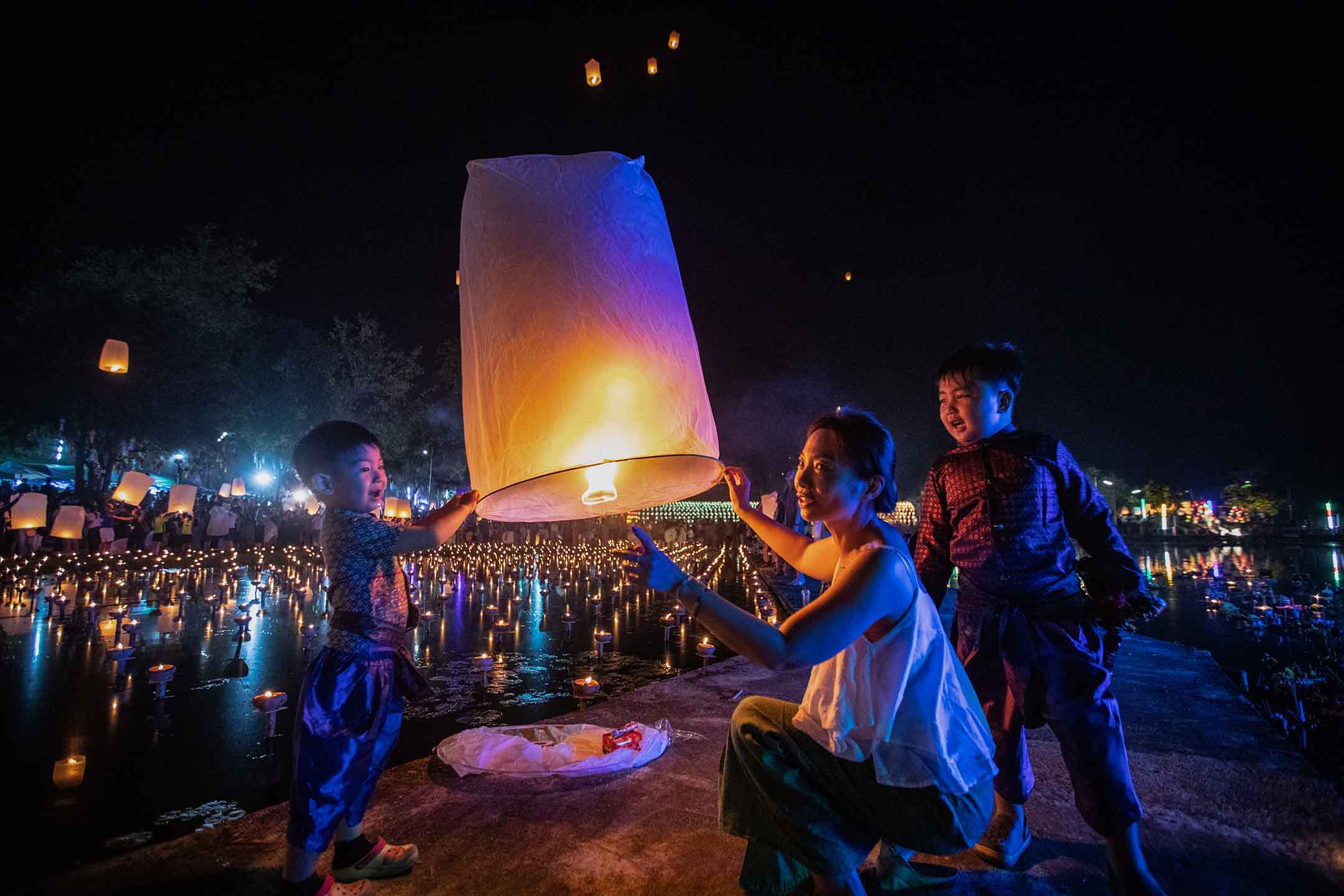
***
Trying Chiang Mai on for Size
定居清邁的探索
[Translators Note: ‘Exploration’ or ‘searching’ 探索 tàn suǒ is a word with a particular significance in post-Mao China. It was the title of one of the most important samizdat publications produced during the Democracy Wall protests at Xidan in Beijing. From late 1978 to late 1979, young people in particular used big-character posters and unofficial publications to express their frustrations with and hopes for China. For a moment, the roughhewn cultural journal Exploration 《探索》 was a prominent vehicle for a nascent youth culture. The connotation-rich expression 探索 tàn suǒ continues to resonate today.]
Sig: When we did meet up I still didn’t know what our next step would be. Should we go to Phuket, stay in Bangkok, head up to Chiang Mai, maybe go to Penang in Malaysia or even somewhere in Laos? We were weighing up which of those places might be somewhere where we could create an ideal new home. To be honest, initially I wasn’t entirely convinced that Chiang Mai was the right choice. It was too much like Dali, though not nearly as beautiful. The Canshan Mountains and Erhai Lake in Dali are breathtaking. The scenery in Chiang Mai simply can’t compare. But then, after we’d been here a few weeks, it gradually grew on me. It’s one of those places that slowly reveals its discreet charm.
I’d moved to Dali just as the pandemic was taking hold and there were no lockdowns there. Life was relaxed and pretty ideal. To my mind, in that regard at least, Chiang Mai is like an upgrade on Dali. By this stage in my life, I feel as though I’ve experience all kinds of lifestyles and I have a pretty good idea what suits me best. Now, all I need is the space to create what I need for myself.
I’ve been telling just about all of my friends that they should move here to Chiang Mai. It’s because the most important thing for all of us is time, and I think it’s important for us to spend as much time together as we can. We won’t only be meeting up once a month any more, we’ll be together every day. It means that I can call you over to my place for a meal whenever the mood takes me.
Tony: Although the arc of my life has been very different in many ways, I’ve also had some similar experiences to you. About a year before I packed up and left New York I had come across Sunset Park, a really special community in Brooklyn [named as one of NYC’s ‘Next Hot Neighborhoods’ by the New York Times in 2016]. It included Brooklyn’s Chinatown. There was fantastic and cheap food, so much so that I was constantly getting friends to meet me there for meals. It gradually dawned on me that it was just like China in the 1990s: there were internet cafes, pool halls and even KTV joints. So my gang of ‘cool kids’ — successful people in their thirties — hung around the area like a gang of cashed up high-school adolescents.
Sig: I’ve really had that kind of feeling myself — countless times that I’ve hit the road with friends to go to Hui Shan or Shaxi outside Dali. We’d always say how much it felt as though we were reliving our high-school years. Here we were, people bound for our forties, acting like teenagers. It was so much fun, getting in a car with a dog and just taking off like that.
Tony: When you’re with others like that you really do create that kind of vibe.
Sig: It’s an awareness and sense that we all share. We’ve experienced that kind of feeling since coming to Chiang Mai, too. We’ve been able to have a whole pile of great experiences like that here. There’s this French friend who we knew back in Dali. When we came across each other here he said how amazed he was to find more French people hanging out in Chiang Mai than anywhere else he’d ever been. Truth be told, it’s not just French people, there are people from all over.
Tony: New York is supposedly the most international of cities but there I often felt as though people’s values weren’t particularly international at all. Sure, people moved to New York from around the globe in the belief that ‘if I can make it here, I can make it anywhere’. But those who come to Chiang Mai have a far more chill attitude. It’s as though they’re saying: just let me enjoy the good life and get on with things.
Sig: It’s like so spaced-out here. [真的很佛。]
Tony: That’s exactly it. We’ve seen so many places for rent here together — four and five storey houses, some with garages, others in high-end neighbourhoods with gardens landscaped with small hills. There was even that place with a large fishpond downstairs. You could actually fish from the balcony. There was even an orchard next door.
Sig: That’s right and rent is all pretty affordable. It’s why people let their imagination run riot.
Tony: My New York buddies who’ve made a point of visiting me here have really been surprised. In the process of helping me set up my music studio they’ve discovered, regardless of whether they’re from New York or they’re coming from China, that ‘having been uptight for so long, there’s finally a place where they can just let go’. It’s only now that I’ve been able to chill and let go of all the tension that had built up in me during the pandemic. Then, so many things got to me or were completely beyond my control. I lost sight of the fact that although I was a producer, I’ve never really been able to ‘produce’ my own life in any meaningful way. Earning money and making a career for oneself should only ever be part of the story. You need to think, what kind of life do I really want? Am I truly at home in the place here I live? Can I eat the kind of food that will really satisfy me? Not only can you create these possibilities for yourself, ‘it’s not only producible, you have to make an effort to really do it’.
Sig:在曼谷見面後,我們心裏也不確定,還考慮了普吉島、曼谷、清邁,也去到馬來西亞的檳城,還去了老撾,選擇和比較哪個地方更適合創造新的美好家園。其實剛來清邁時我們不是很滿意,因為它太像大理,但景觀不如大理美。大理蒼山洱海的視覺衝擊力太強。清邁在這個方面差點意思。但是,待到半個月的時候,開始覺察到清邁的妙處——它是需要耐心去體察的。
我在疫情剛開始的時候就搬去大理。大理沒什麼疫情封控,大家過着稀鬆平常的生活,非常美好。對我來說,清邁是升級版的大理。我覺得我經歷了很多生活,已經找到了最好的生活的模樣,我只是需要一個空間把它給塑造出來。
我跟很多朋友、好朋友都說,搬來清邁吧,因為我們最重要的是時間。要讓人生中的這幾年,都在一起。不是你一個月來看我一次,是我們天天在一起,我隨時可以讓你來我家吃飯的那種在一起。
東尼:我有個非常不一樣但又很類似的經歷。在我搬離紐約前一整年,我在布魯克林找到了一個特別神奇的社區,叫日落公園 (Sunset Park)。它其實就是布魯克林的中國城。那邊東西特別好吃,又很便宜,我就天天叫朋友到那個地方去吃飯。然後發現,那裏簡直是一個 90 年代的中國,街上還有網吧,還有桌球館,路上還有KTV。我們一幫 30 多歲有事業的成年酷兒朋友,天天活得像個很有錢的中學生。
Sig: 對,這種感覺特別明顯。我跟好朋友無數次在公路旅行,去微山,去沙溪的路上,我們都說,我們現在太像中學生了。我們怎麼以 40歲進入了一個中學生的狀態,一群好朋友,很快樂得開着車帶着狗出去玩。
東尼:人和人在一起,就會和這個地方產生聯繫。
Sig:這是一個特別強烈的共識。我們都來了清邁之後體驗也非常好,然後一起去體驗更多更好的東西。我們有位法國朋友,他在中國的時候住在雲南,後來搬來清邁,我們在清邁見面。他說,哇,你知道嗎?我去了這麼多國家、這麼多地方,從來沒見過哪裏像清邁有這麼多法國人的。何止法國人多,哪裏的人都很多。
東尼:我在紐約,感受到所謂最國際化的一個城市,很多時候,價值觀並不國際化。每個人從世界各地來到紐約,大家都抱着一副 if I can make it here, I can make it everywhere [sic] 的野心。反而到清邁,大家都屬於一種擺爛的心態,就是讓我好好活着,我就想好好活着。
Sig:真的很佛。
東尼: 特別佛。當時我跟你一起去看了好多個房子。有什麼四五層樓高的,又帶車庫,在高級別墅區裏,造了假山造了景。還有個房子,底下就是魚塘。你可以在陽台釣魚,旁邊還有果園。
Sig:對,反正這邊便宜,大家放開想象力隨便搞。
東尼: 這個給我紐約的朋友非常大的震撼。我房子一租下來,好幾個朋友就專門從紐約飛來住。也幫我把音樂工作室什麼的搞起來。大家發現,不管是從紐約還是國內過來,都是「捲了好久了,然後終於可以躺平一下」。我發現自己很長一段時間,尤其在疫情期間,人是非常不舒展的。有很多要擔心的東西,很多無法控制的事情。我忘了,我是一個製片人(Producer),但是我從來沒有去produce我的生活。錢和工作事業,只是一方面的東西。我應該把生活安排成什麼樣的?住的空間我喜不喜歡?今天能不能吃到我愛吃的東西?這些東西不但是可被打造出來的,我們也必須要去做這件事(not only its producible, you have to do it)。
***
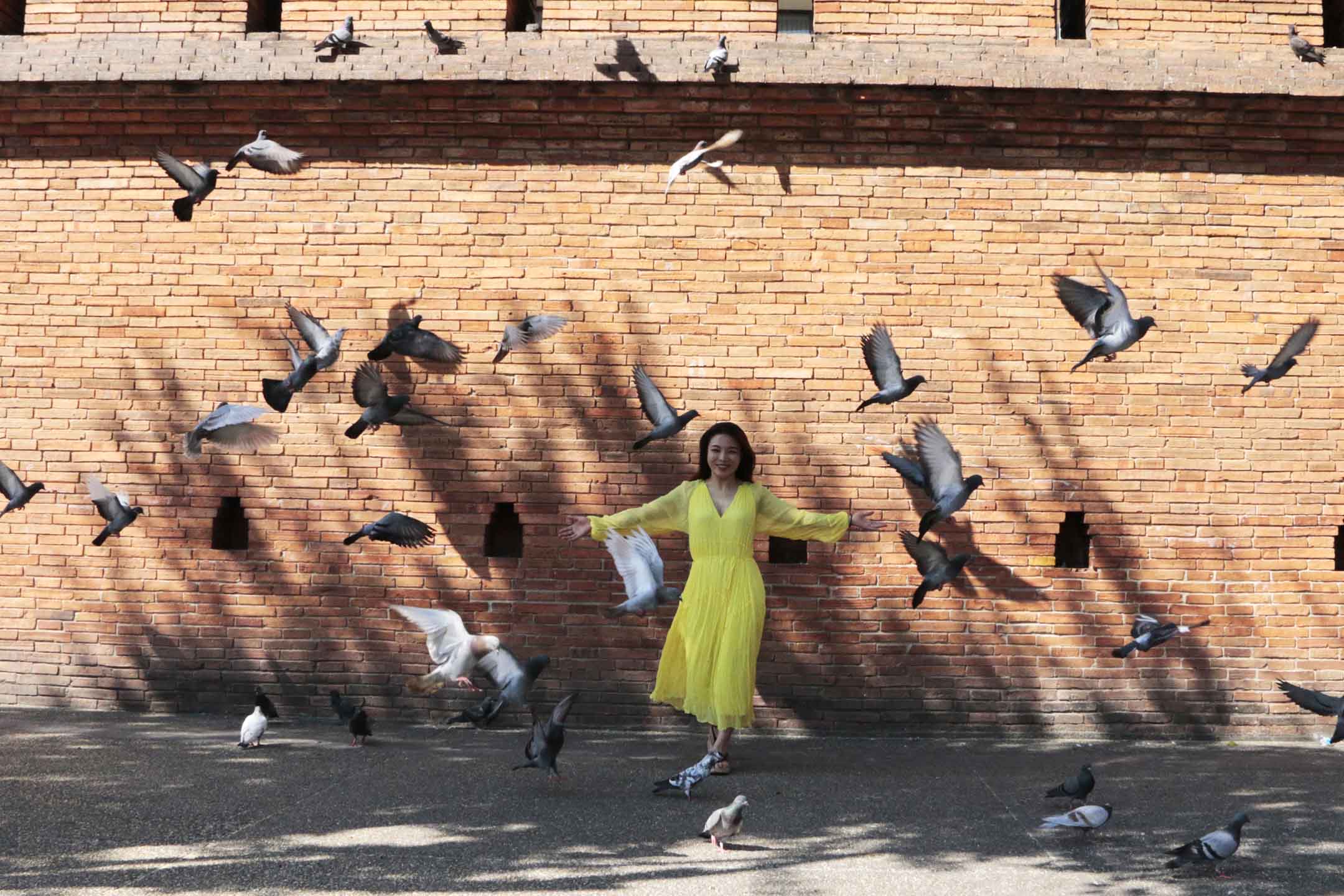
***
Reflecting on How I’ve Changed
探索自己的改變
Tony: I’m curious to know how you think you’ve changed since moving to Chiang Mai?
Sig: The job I had back in China involved a partnership with a Dutch company, so I frequently had to travel overseas. Lots of my colleagues were also foreigners, so I’d come to think of myself as being very cosmopolitan. I could use my VPN to access the outside world, so I reckoned that I was just like everyone else. But, after having lived here for six months now, when I think about my old mindset, I realise that I’m not particularly cosmopolitan at all.
The way I think about lots of things, as well as the way I interact with others, not to mention the way I frame my understanding of the world, are all really very Chinese. Take the kind of content I used to make in China. Because it was geared towards a Chinese audience I automatically made it to be quiet didactic. Or, since I was aware of the numerous limitations that were imposed back home, I consciously engaged in self-censorship. I knew not to cross the line. I had an inbuilt instant response that allowed me to steer clear of problematic things.
[Translator’s Note: See Elephants & Anacondas, 28 June 2017]
Now I really want to do the things that I want to do. I think that’s really cool. To reach this point in my life, has not merely been a result of crossing a national border, it’s been the gradual outcome of months of work. It’s a process that has unfolded in numerous ways, including learning how to make Thai friends, appreciating how they think, and realising that they deal with things in a very different way. They influence me now; to learn to be able to really converse with people from all over the world requires a gradual process. It’s a blast.
東尼:我好奇,你從來清邁到現在最大的改變是什麼?
Sig:以前在國內生活,我的工作經常在海外出差,合作公司是荷蘭公司,同事經常是外國人。我一直覺得我是非常國際化的,覺得可以用VPN,可以看到這個世界,跟大家沒有什麼區別。但出來生活了半年之後,再回顧以前的狀態,會發現自己是非常不國際化的。
很多想事情的思路方式、跟人打交道的方式、對於這個世界的思考是很是很中式的。比如常年在中國做內容,影片是給中國觀衆看的,不免會被觀衆教育做內容的方向。或者知道在國內做內容會有大量限制,自動天生就有一個緊箍咒。自我審查能力特別強,第一秒就條件反射自我審查。
但今天我就想做我自己想做的事情,我就覺得這樣做最酷。走到這裡所要經歷的一步,不是跨過國境那一天就邁出去的。這個轉變,是在長達幾個月的時間裏逐漸完成。它包括很多細節,比如跟泰國人交朋友,在交往過程中發現他們思考、處理事情的方式從底子上就很不一樣。這些態度都在影響着我。我覺得在這個緩慢的過程之中,我今天可以跟世界不同的人對話,特別好玩。
***
Source:
- 林東尼, 清邁半年,在破碎的世界裏重建生活,《行星酒館》,EP-01,The Initium 端媒體,2023年9月2日
***
很佛 — Kerouac in Chiang Mai
The spirit of Jack Kerouac’s On the Road may well motivate Nomadic China. However, in the People’s Republic itself a very different work, one that was inspired by Kerouac’s novel — Hunter S. Thompson’s Fear and Loathing in Las Vegas: A Savage Journey to the Heart of the American Dream — is being recorded in the dark reality of Xi Jinping’s Empire of Tedium.
And, as for Kerouac in Chiang Mai, one remembers that the novelist had planned to start a Buddhist monastery in Mexico dedicated, he said, to ‘pure essence Buddhism… that would be, I ’spose, no rules’.
In The Nirvana Express: How the Search for Enlightenment Went West (Hurst, 2023), Mick Brown wryly observes that this ‘would have made it unique among Buddhist monasteries throughout the world, which generally have more rules than the British civil service’.
Furthermore, given the long-standing intimacy between the Sino-Thai elite and Beijing, not to mention the tangle of clashing Chinese ethnic groups in the country, it is hard to imagine that the ‘relevant organs’ of China’s party-state have not long been active in North Thailand, which has a high concentration of Hakka Chinese. They, too, know all about rules and regulations.
[Note: For a provocative analysis of the long-standing Chinese regional ethnic rivalries in Thai political life, see Benedict Anderson, Riddles of Yellow and Red, New Left Review, Issue 97 (Jan/ Feb, 2016).]
Native Woods and Rich Pasture 志在豐草
on China Heritage 《遺典》, July 2016
Geremie R. Barmé
I share a sense of fellow-feeling with the creators of Planet Speakeasy. Decades ago, in 1983 in fact, I gave up on settling in China and chose instead to pursue my studies of Feng Zikai and the alternative world of modern Chinese letters from a distance. Then, in 2016, repelled by conservative politics, institutional decline and bloody mindedness, I abandoned Australia in favour of New Zealand to the near east, a country with which the Anglo-Scottish side of my family had a connection that went back to the late nineteenth century. When creating China Heritage, I drew inspiration from The Seven Sages of the Bamboo Grove 竹林七賢, a fabled (and tragic) artistic collective that I had read about when I was high school, half a century earlier. The essay On Heritage, which outlines the rationale behind China Heritage, offers a view of the why and wherefore of this end-of-life endeavour.
— GRB, 3 September 2023
***
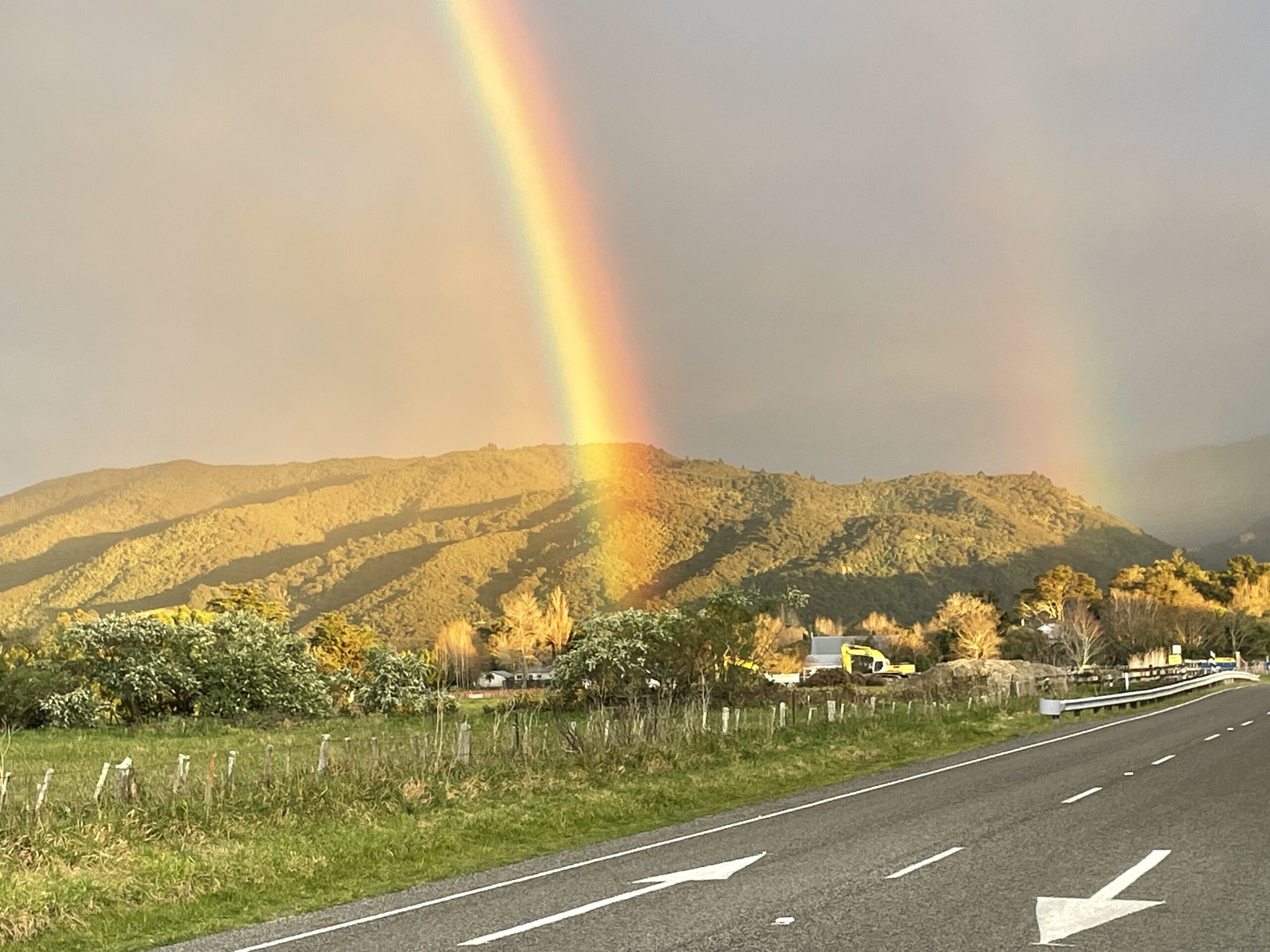
***
The character yí 遺 used here as our leitmotif is taken from the calligraphy 遺墨 of the Tang-dynasty artist Li Huailin 李懷琳. It occurs in Li’s grass-script 草書 version of a ‘Letter to Shan Tao’ 與山巨源絕交書, a famous epistle by Xi Kang 嵇康 (also pronounced Ji Kang), one of the celebrated Seven Sages of the Bamboo Grove 竹林七賢, in which Xi ends his friendship with another member of the group.
Etienne Balazs remarks that:
In this letter, written shortly before his death, Xi Kang broke off relations with his former friend Shan Tao, who had not kept his vow of uncompromising integrity, and who, after accepting a high post, had even dared to suggest that Xi Kang should become his assistant. Xi Kang, full of violent indignation, threw the offer back in his face, saying abruptly that his aspirations were not of this world, and explaining with such eloquence what Flaubert somewhere in his letters has expressed in the lapidary formula: Les honneurs déshonorent, le titre dégrade, la fonction abrutit.
In his ‘Letter to Shan Tao’, Xi Kang (223-262CE) says that the ‘wayward’ ideas of Taoist sages had long influenced his predisposition to reject worldly office:
… My taste for independence was aggravated by my reading of Zhuangzi and Laozi; as a result any desire for fame or success grew daily weaker, and my commitment to freedom increasingly firmer. In this I am like the wild deer, which captured young and reared in captivity will be docile and obedient. But if it be caught when full-grown, it will stare wildly and butt against its bonds, dashing into boiling water or fire to escape. You may dress it up with a golden bridle and feed it delicacies, and it will but long the more for its native woods and yearn for rich pasture. 又讀莊老,重增其放。故使榮進之心日穨,任實之情轉篤。此由禽鹿少見馴育,則服從教制,長而見羈,則狂顧頓纓,赴蹈湯火,雖飾以金鑣,饗以嘉肴,逾思長林,而志在豐草也。
Like Xi Kang eighteen hundred years ago, our taste for independence was also aggravated early on by reading Laozi and Zhuangzi, among others; since then, the allure of golden bridles and delicacies has been but slight. We believe that through China Heritage and The Wairarapa Academy for New Sinology, and after long years spent in tertiary bonds, rather than seek release in boiling water or fire, it is time to return to native woods and rich pasture.
— from Geremie R. Barmé, On Heritage, July 2016
***
